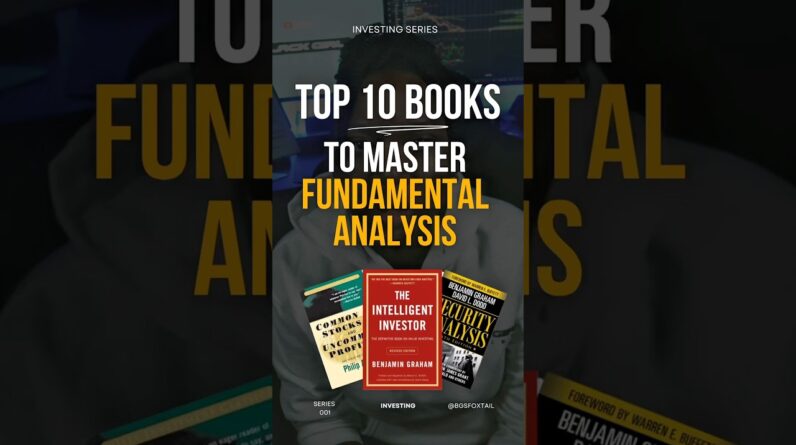If you look at the more successful traders you’ve encountered, you may have noticed some recurring behaviors and habits they have.
They often congregate in the same communities, use the same or similar tools, and nearly all of them have common threads in their daily routines.
Many novices begin their trading career doing all of the right things. They learn the basics about how markets and trading work, choose a simple trading setup and try to nail that over and over again.
However, most of the time, they still find that they’re struggling, like there’s some golden egg that they’re missing that all of the successful guys have.
One of those missing pieces is experience, which can’t be bridged by any amount of reading, you just have to make tons of trades and review them thoughtfully to develop that sixth-sense of pattern recognition that the best traders seem to have.
But another one of those missing pieces is to adopt some of the practices of the winning traders. Learning to think like them, socialize with them, and steal their healthy habits.
In this article, we’re going over two key factors to start your journey from novice trader to winning trader. Those are:
- Surrounding yourself with successful traders
- Learning to think like winning traders
Surrounding Yourself With Successful Traders
Jim Rohn famously said that you’re the average of the five people you spend the most time around. The quote borrows from the law of averages which posits that “the result of any given situation will be the average of all outcomes.”
But you can expand this to several disciplines. In the gym, you’re the average of the five people you work out with most often. If they never reach for personal records or push for that extra mile, you probably won’t either.
Applied to trading, it might be a stretch to assume your P&L will be the average of the five traders you spend the most time with, but if they all average down on losing trades, cut their winners too early, and are lazy with setting stop losses, you’ll probably fall victim to the same mistakes.
As a result, surrounding yourself with winning traders who have positive (but realistic) mindsets is almost like a shortcut to becoming such a trader yourself.
How to Find Winning Traders?
While helpful, self-help mantras like “you’re the average of the five people you spend the most time with” provide zero guidance. How do you meet these people? Why would they want to spend time with you and give you advice and mentorship? Even if you do become friends with these people, how do you get what you want out of the situation?
This issue really depends on the type of person you are. Type-A extrovert personalities will typically do these things by instinct and need just a little guidance, like where to go and some basic principles.
However, for the rest of the population that doesn’t fit into that mold, you’re going to have to do some non-trading-related studying, and it’ll probably be more difficult than studying trading because of the uncomfortability.
This isn’t an article on social skills, but Larry King’s book How To Talk To Anyone, Anytime, Anywhere, is an excellent book on having good conversations. King is a legend in the talk show genre and he’s known for extracting some of the best interview bits from difficult guests.
Places to Find Winning Traders
There’s costs and benefits to both online interaction and in-person.
Online will provide you with more leads but those leads will have a far lower conversion rate. Conversely, in-person networking can lead to instant connection and interacting, however, you won’t have the scale that global online forums can offer.
Online Venues
Chat Rooms
Chat rooms have long been the preferred method for traders to interact with each other throughout the trading session. When the market is open, people make callouts on hot entry points on hot stocks. When the market is closed, people chat about their failures and successes, how to improve, and whatnot.
There are two types of trading chat rooms.
There are those like the Warrior Trading Chat Room, which cost a fee, but are run by a professional trader who not only contributes their trading wisdom to the room, but also curates it to ensure quality.
The members of these chat rooms frequently set up private meetings among a few of their favorite members and meet somewhere like Vegas or Orlando, grab some cocktails, play some cards, and talk trading.
On the other hand, you have tons of Discord and Telegram groups promoted on sites like Reddit. You’re likely a part of a few of these and frequently get invited to them. There are certainly needles in the haystack, but most of these rooms are filled with novice traders looking for someone to tell them exactly which stock to buy, and when.
If you build up a strong network of winning traders, however, you might get an invite to a high quality private room if you can convince them you have something to add.
WallStreetOasis
Any young person who works on Wall Street is familiar with WallStreetOasis. It’s an anonymous forum where finance professionals gather and blather about the glory and disgrace of working for a bulge bracket investment bank like J.P. Morgan.
While most forum members are new to the industry looking for tips to move up, there’s a number of veteran members who speak candidly about their work. These members, where you can find them, can be a huge source of knowledge.
Traders will want to pay attention to the Sales & Trading forum, which is where you’ll find all manner of traders, however, the most applicable to the equities industry are the hedge fund execution traders and proprietary traders.
Keep in mind that the skills, career path, and goals of hired-gun traders like execution traders are very different from the self-directed day traders so you have to learn to speak their language if you want to have interesting conversations. Most of these traders think about how to reduce transaction costs i.e., how to buy or sell a large block of stock without moving the market too much, while you might want to buy a few thousand shares at a clip and flip them a few minutes or hours later.
It’s not uncommon to hear that two WSO members privately messaged each other to set up a coffee meeting. They’re all used to it because they’ve cold emailed hundreds of people to get interviews.
LinkedIn is probably the best place to find serious, targeted networking connections. The problem is that most people use it incorrectly. People tend to self-flagellate about their own accomplishments and goals.
I’ve made amazing connections through LinkedIn by simply learning to use the search engine and targeting people in a specific industry.
Perhaps you want to find proprietary traders. You can search for “proprietary trader” around your nearest city. Simply private message them telling them that you’re impressed that they can trade with such a prestigious firm (if the firm is prestigious, of course) and you’re interested in their trading story. Ask for a quick coffee.
There’s also plenty of interesting groups for professions like prop traders, execution traders, and whatnot, but be skeptical of these, a lot of them are glorified lead generation funnels.
Thinking Like a Winning Trader
Winning traders are pretty rare.
Most of us have heard the statistic that 95% of traders fail. There’s actually some validity to that from a Brazilian study of futures day traders done recently called Day Trading for a Living?
As a result, we must conclude that winning traders do some key things very differently than average traders.
One of those things is the way they think and feel about their trading results. It’s very much the same in business. If you read the biographies of business tycoons throughout American history, most of them credit their attitude and mindset for the majority of their successes over any sophisticated business prowess.
In my experience, the primary traits of a winning trader’s mindset are probabilistic, realistic, and optimistic.
Having a probabilistic mindset takes a lot of time and rethinking about basic things in our life. And it’s easy to get wrong too.
A great example of someone with an unhealthy probabilistic mindset is Ben Stiller’s character in Along Came Polly. He was a life insurance analyst who constantly quantified the risks of living your daily life. As such, he approached life by trying to mitigate risk at every corner. The entire subject of the movie was based on getting him to overcome this mindset which became a virus in his own mind.
Traders need to not only grasp statistical realities like what the market can realistically offer us in terms of consistent returns, volatility, portfolio risk, crashes, etc., but they need to learn how to apply this as a way of thinking.
There’s plenty of books to read on this, but I think the best allegory for this is the mindset of a professional poker player.
There’s two elements to a good poker player’s mindset. There’s the probabilistic, realistic side which crunches numbers, thinks about the way a player played a hand, and uses their opponents playing style and tendencies to influence this equation.
The other side of the mindset is cultivating a gut instinct and trusting it when the money is even or when the odds are against them. This takes tens of thousands of hands, just as it takes thousands of trades to cultivate.
The reason poker and trading go hand-in-hand so well is because they both deal with trying to optimize decisions with incomplete information. The difference is that poker is a closed system with lots of known elements, while markets are chaotic systems with tons of uncertainty and randomness.
Popular trading literature doesn’t focus on these types of elements enough, so I’d recommend reading some popular poker books. Poker: The Real Deal is a great introduction, and the Theory Of Poker by Skalansky is a great, more dense follow-up.
Then play some poker and apply your knowledge and you’ll be amazed by how you start applying this style of thinking to trading and other areas of your life.
Bottom Line
You don’t become a winning trader by reading about what they do. You become a winning trader by reading about it, then applying it.
While that’s really obvious, I think we’re all guilty of passively consuming information without applying.
It makes us feel productive, but after a few weeks of not applying the information, you lose more than 95% of it anyhow, so it’s almost completely wasted time.
The post How Novice Traders Become Successful Traders appeared first on Warrior Trading.
Original source: https://www.warriortrading.com/how-novice-traders-become-successful-traders/




